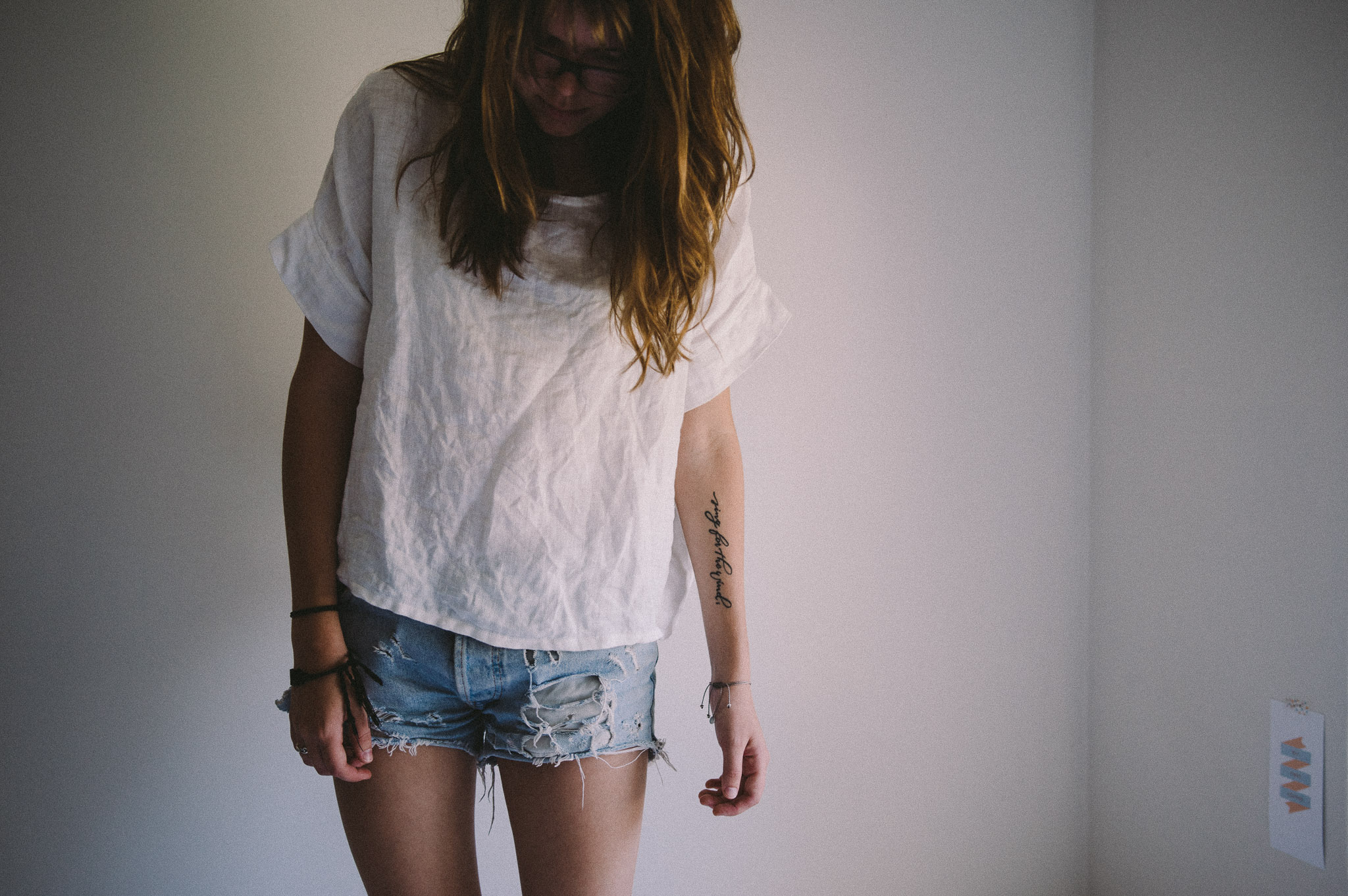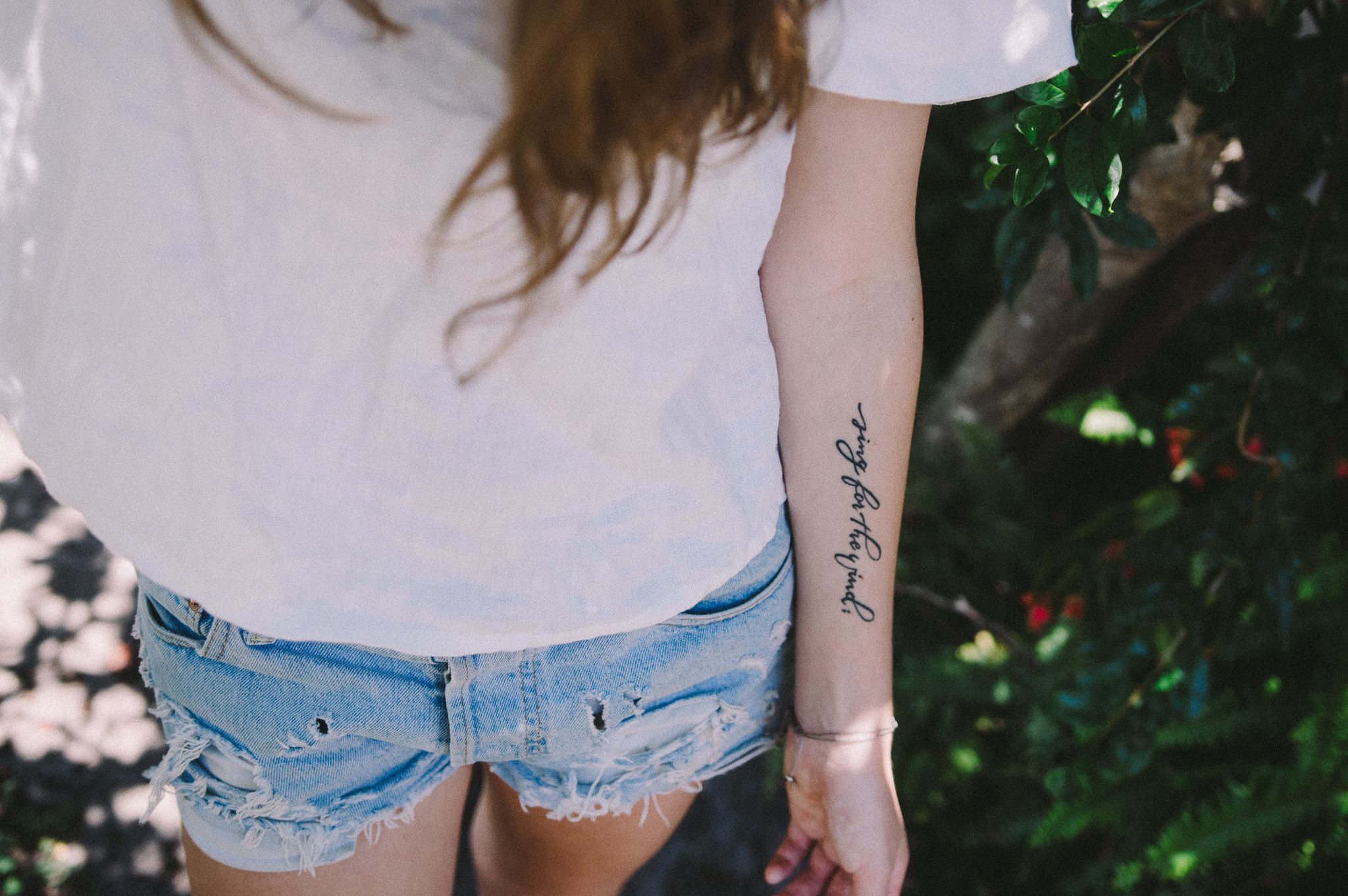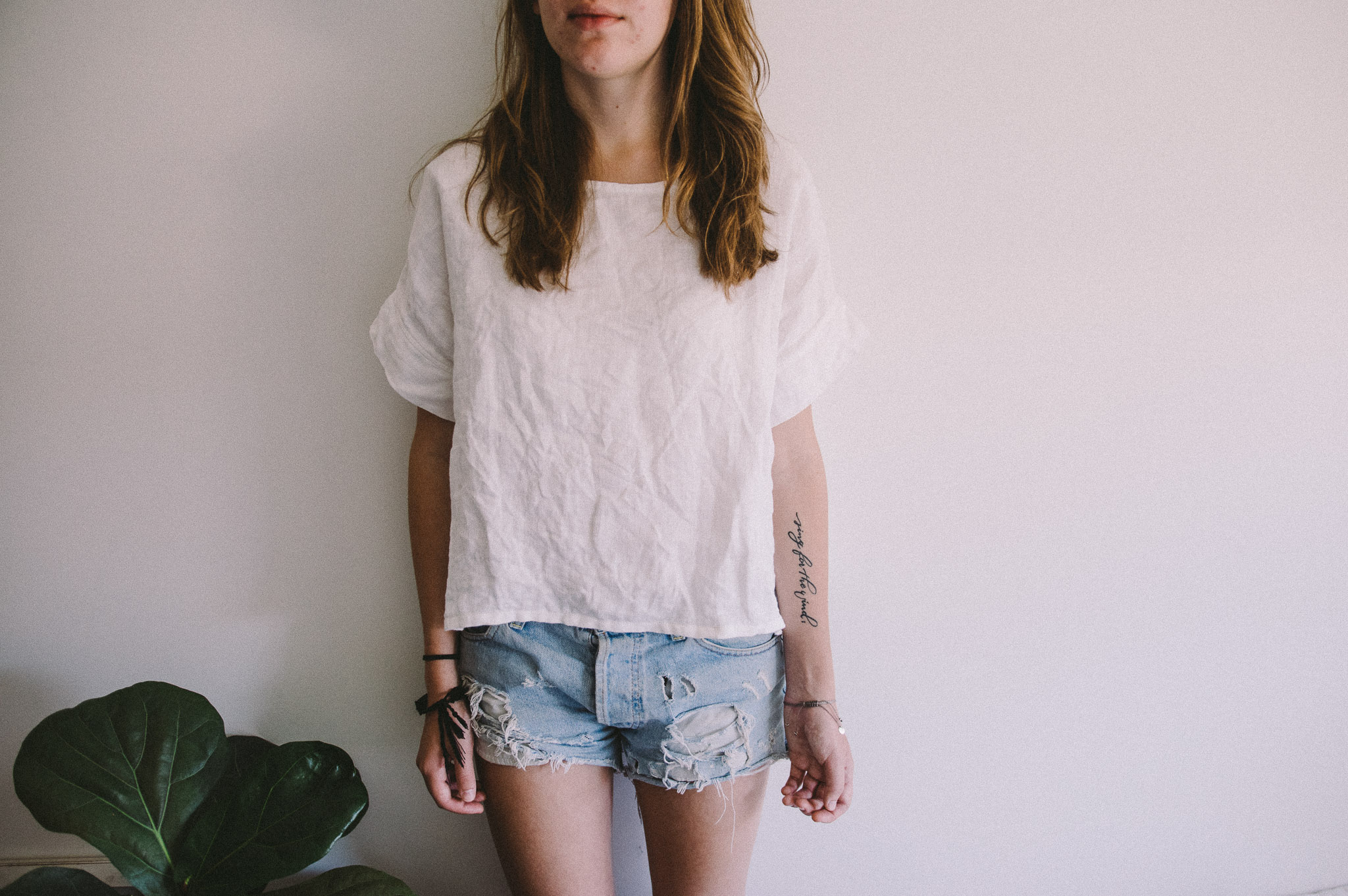On Depression.
December 8, 2015
I wake up, pain shoots through my arm. My eyes are groggy and I feel like I’m coming to after a surgery, but really it’s just the trauma of a dislocated wrist. I grimace using my other arm to find my phone and message Mum, “panadol”. She’s in before sleep could claim me again, painkillers in hand and offering to make me a cup of tea. Gosh that woman’s a saint.
5 hours later and I haven’t moved. I can’t get out of bed today. I just don’t have it in me, and besides, what’s the point? My body’s failing and I can’t do shit.

—–
I’m sitting on the couch in a university common room. The world seems as if it’s swimming around me. I haven’t spoken a single word all day. Someone tries to chat with me about something but I feel like I’m underwater and the words dissipate like bubbles floating to the surface. My best friend shakes her head at them. “Is she okay?”, I think I hear them ask. I don’t really know what she says in reply. Everything is heavy and liquid, and I just want to go to sleep.

—–
I remember the first time negative thoughts entered my mind – not just a casual ‘oh man that was stupid’, but a really desperate, sinister negativity. I was 16-years old, standing in front of my wardrobe trying to choose an outfit, and I’d just gone through the biggest health scare of my life. I had a great team of doctors but not one of them thought to check if I was doing okay – mentally so.
I waved it off, but I knew somewhere deep inside of me that this was the beginnings of depression. I figured though that I’d always just dealt with these things, so I convinced myself the negative thoughts wouldn’t be any different. I was a fighter right? So I’d just fight!
In public, I continued being my cheery, happy-go-lucky self, an identity I so desperately wanted to preserve, while my internal dialogue grew darker and darker.
Less than a year later, I’d undergone a third major surgery and for the first time, I felt the immense, overpowering pain of my depression, coming from somewhere deep inside of me, somewhere I couldn’t find it to make it stop. I cried every night, desperate for someone to help.
A good day was one in which I didn’t have a panic attack. A good day was one that didn’t end with me sobbing in the shower, hiding from the world.
And yet, not many people realised I was going through this, because I didn’t feel able to talk about it. Depression was a weakness and in those first few years, when even my family didn’t understand, I felt trapped, alone, a failure.
You see, there is a special kind of pressure on so-called ‘sick kids’ to always be cheerful. I can’t count the number of times that I’ve heard the family or close friends of a child with a serious or chronic condition say, “but they’re just so strong! They never let on that they’re in pain and they just get on with life.”
As a child, you absorb this. You take this on as your role – to be the cheerful one. But also, as a child, it’s easier. Usually, there are less pressures of life, and the condition is just your normal. But coming of age, realising the impact that this will have on your life and the fact that it’s never truly going to get better, suddenly makes things a lot harder.
Your health influences your work, study, financial capabilities, hobbies, friendships, relationships – everything – and meanwhile, the unsung expectation of the ‘happy sick kid’ continues.
Even now, I have friends who I have known for years say, “but it can’t be that bad! You’re always so happy!”, and I can never tell if they’ve chosen not to see the difficulty, or if I’m still subconsciously hiding it.
A few years and an awful lot of hard work after that day, standing in front of my wardrobe, and getting out of bed is no longer next to impossible, panic attacks aren’t a near-daily occurrence, and every now and then, for a brief moment, I forget about it all.
But when I’m being honest with myself, I know that I’m still struggling. I struggle with the way this condition impacts what I can and cannot do, with the idea that it’s stolen so many of the things I love from me, and I struggle with the impact it has on other people’s perception of me – perhaps now more than ever.
Social media is an amazing tool for a young entrepreneur – I don’t think I’d have my business or my current lifestyle without it – but it comes with a serious dark side for those struggling with illness.
I feel like I’m in a position to be a positive voice for those with EDS and other chronic health conditions – I want to be an example of someone who’s living life despite it all, but I don’t want to be seen as a ‘sick kid’. I want to be the person who says, ‘yes, you can still do this! Just know that sometimes it’s going to suck in a way that nobody else will be able to understand’. But I don’t want potential clients to go elsewhere because they’re worried my health will impact on my work. I want to be honest and real about the fact that very real experiences of depression and anxiety are almost guaranteed when you have a chronic health condition, but I don’t want to be seen as weak, I don’t want unsolicited advice, and I really don’t want to deal with internet trolls telling me to get over it.
But in the end, I’ve come to realise that the people I want to work with and be surrounded by are the people who won’t even take that into consideration, or who will have the faith to move past it. Who trust that my honesty is a sign that I won’t take on more than I can handle – that I know what I’m capable of and that I’ll always work hard behind-the-scenes and on location to create beauty.
So to everyone else out there dealing with chronic conditions, always remember that there are incredible people out there who will see you for you – who won’t give a rat’s ass that your body doesn’t quite do what it’s meant to, but who will still be there for you when life becomes a bit too much to handle.
Chronic health conditions are not your defining feature, merely a fact of life that sometimes makes things a little harder. But you can do it. Because you are amazing. You are capable. You have a talent for something.
And when it feels all too hard, just remember to take a pause; take a day to rest and recuperate because you’ve got a lot of life left to live.



—–
Photography by Tanya Voltchanskaya
Tattoo by Petrelli Tattoos, Design by the Articulate
Wearing Elizabeth Suzann
—–
“Sing for the wind my love,
Fear not for tomorrow.
‘Cause love’s the journey of a lifetime,
And where you finish isn’t where you start”
[Updated 12 July 2017]
Related
Leave a Reply Cancel reply
You must be logged in to post a comment.